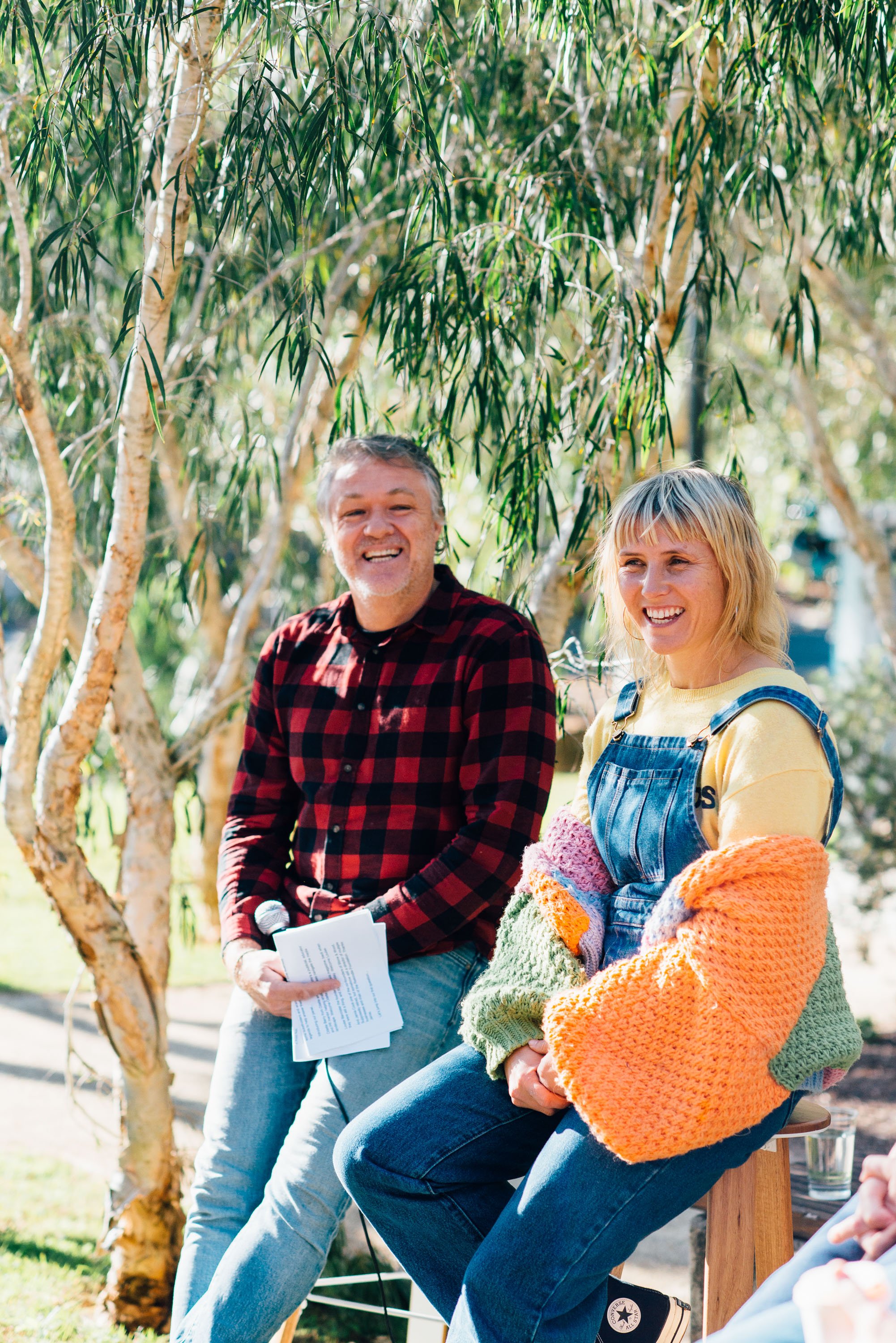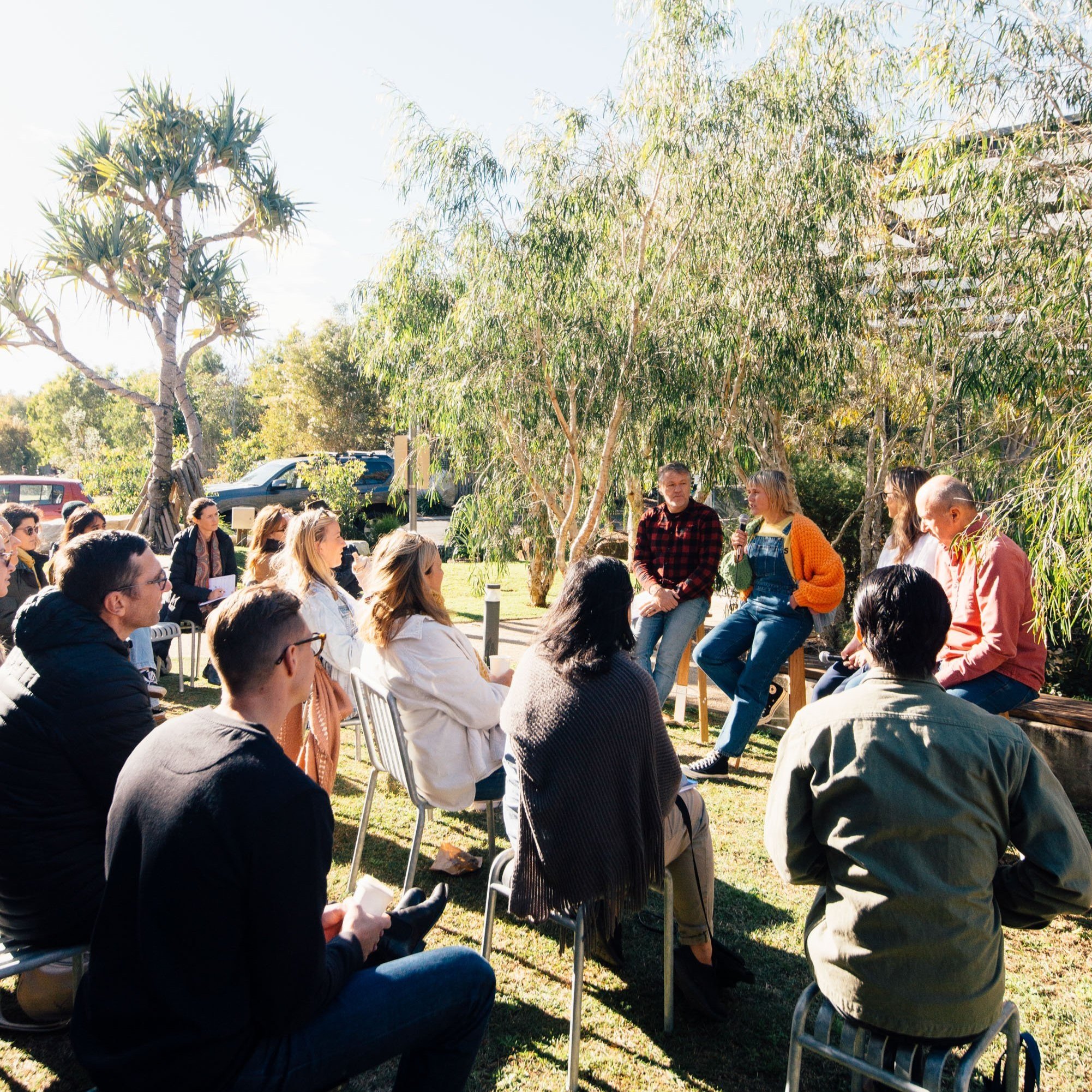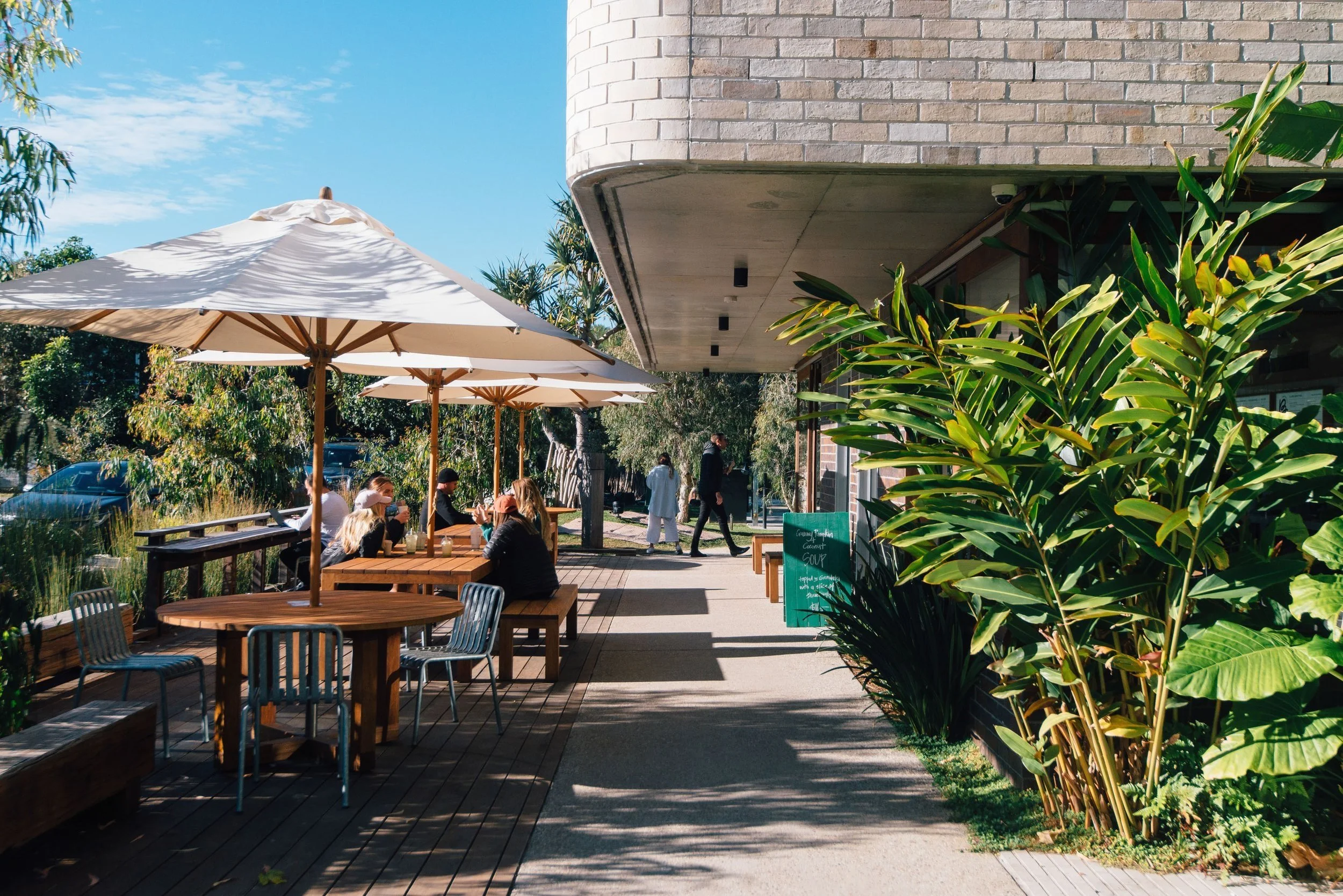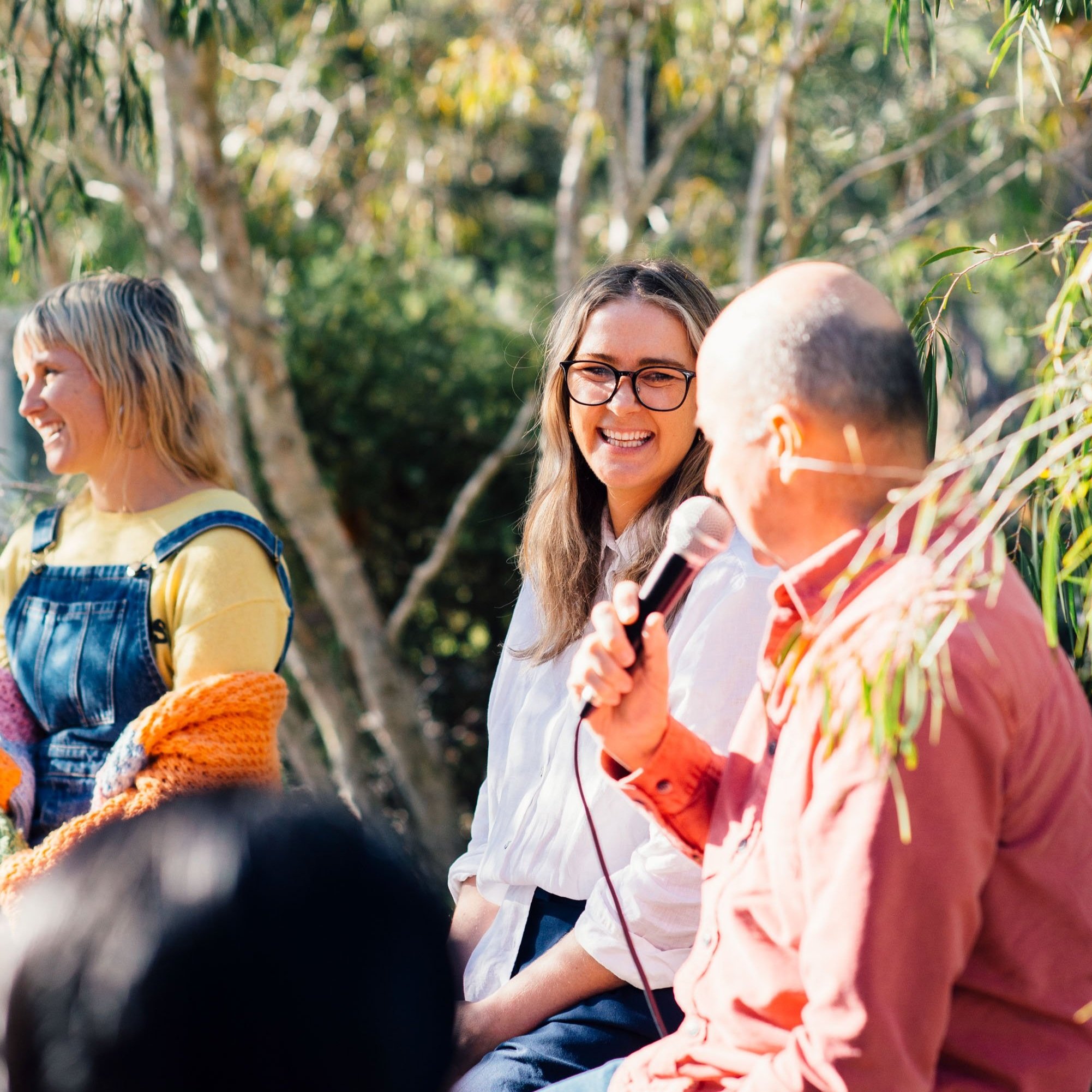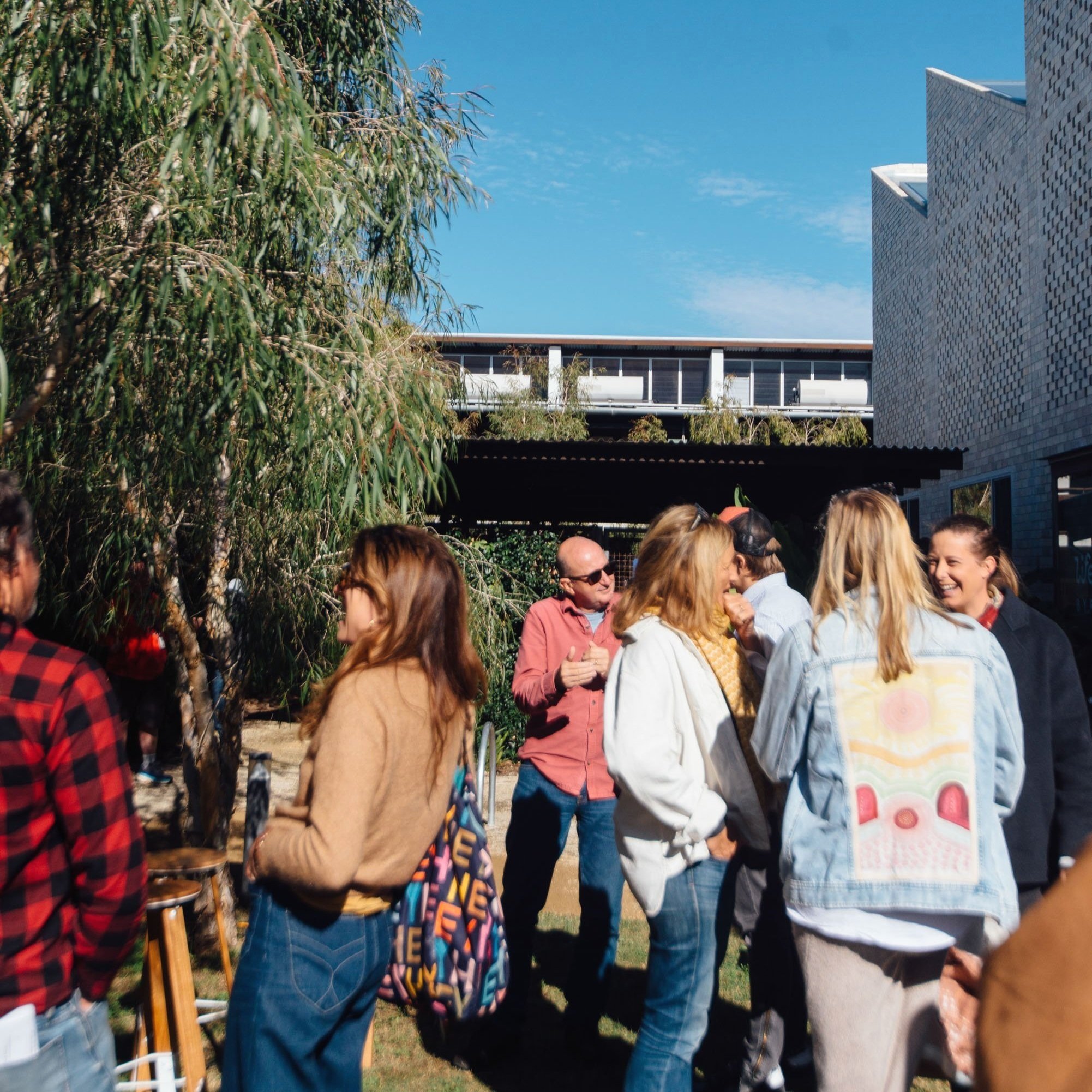PROBLEMS FOR BREAKFAST, MAY 23
Business folk love talking about their latest wins, but we reckon the biggest lessons come from sharing and solving problems. Turns out 50 people from the Byron community do too, because they joined us at Problems for Breakfast, our real business chat where we take people's hurdles, dilemmas and f@ck ups and get a panel of local biz brains to help solve them.
Sat around the little green outside B Smoothie Bar, soaking up the delicious winter sun, we were hashtag blessed to have Odette Barry (founder Odette & Co), Louise Bannister (co-founder frankie mag) and Jamie Cook (co-founder Stone & Wood) make up our first panel. As one guest said afterwards, "This would be a paid event in the city, but you've just got amazing people like this hanging around here, happy to help out."
It's true, one of the reasons we created Problems for Breakfast was because we felt like some places are doing it tough right now and the local community could benefit from getting together. Thankfully Odette, Louise and Jamie agreed and were all kind enough to donate their time and wisdom.
Our plan was to cover at least four questions, but we ended up smashing through six. The hour flew by, and to be honest we were too busy asking the questions to write down all the brilliant answers, but we did manage to capture a few bits of gold. We also produced a little video of the whole thing, which does a better job than these words of capturing the laidback vibe of the event.
The questions and (some) answers...
Q. My question is about passive income. I'm a freelance copywriter and business coach and have built up a successful business. However, coming down with the flu last week was a stark reminder that my business is entirely dependent on me being able to work – swapping my time for money. I wanted to see if the lovely panel has any input on how we can all create revenues from passive income and the best way to do this.
A. "Sadly, there's no magic product that sells itself. Even with things like creating and selling online courses, you have to spend time marketing them, so they make money. And the bigger things get the more time it takes to keep them growing. Think about charging more for your services, so you don't have to work as many hours." – Odette.
Q. From what lens does the panel view problems? I'm curious about the personal approach the panellists take in solving problems – their general mindset and strategies. Also curious about what problems they've faced that have turned into significant opportunities.
A. "I'm an eternal optimist and firm believer there's no problems only opportunities for learning or change. I've never come across a problem I couldn't solve one way or another. It's all about how you approach it. I started a print magazine in a time when everything had gone digital. That was a problem, but we changed our advertising model and started creating content for brands, which ended up becoming a good income for our business." – Louise.
A. "I always come back to what's the strategy of the business. If you have a clear strategy, it's easy to refer back to it when you're solving problems. It helps stop you from making bad decisions." – Jamie.
A. "I've learnt not to make any decisions when I'm on my bleed. Or when I'm ovulating and manic for that matter. Knowing your cycle and working with that energy helps me keep problems in perspective." – Odette.
Q. What are some strategies for the winter slow down and managing cash flow during this period, and generally? In hospitality, some places are closing for a month, but that's tough on staff now and makes retaining good staff harder when summer returns.
A. "Someone said to me once to think of cashflow like a river running through your business and the goal is to dam as much of it as possible. This can be done in all sorts of way like managing your costs of goods and staff. In regard to the local seasonality of trade, you could try and work with a likeminded business somewhere else in the country that's busy in winter, like the snowfields, and do a deal where they take your staff through the quiet months and then they come back in spring." – Jamie.
Q. I just started at a place that I've discovered has zero culture. The boss laughed out loud when I suggested trying to build some. Can a company have good culture if the person at the top doesn't believe in it?
A. "I'd take that as a challenge to find out why they reacted like that. I'd be super curious about what's led them to thinking like that and make it my mission to do something about it." – Louise.
A. "There's actually no such thing as zero culture. There's good culture and bad culture. There's some thinking out there that says whatever your company culture is like with 15 employees that's what it's always going to be like. At Stone & Wood, we always thought about ingraining good culture early on, so that when we grew our people would keep it going in the right direction." – Jamie.
Q. I make a product that's branded Byron Bay, because we started out here, but now we get our stuff made outside the shire. If our office is still here, should we still use the name Byron Bay?
A. "I think it's okay, but you should do something that gives back to the local community, because the Byron name is hugely valuable, and you've profited from that." – Odette.
Q. I've got an online business and I'm interested in selling internationally. There's so many hurdles, from wrangling different currencies on Shopify, to shipping, to warehousing. From your experience, is the juice worth the squeeze?
"I've sold products overseas, and it can attractive when you think about certain currency conversions, but what a lot of people don't do is calculate all the hidden expenses like shipping and distribution. But sometimes it can be worth it, even if it's only cost-neutral, because it sounds good, so you might be able to use it as marketing back home." – Louise.
"We sent a small amount of beer to the UK early on, but that was simply because my wife's from there, and I wanted to drink our beer when we went back to visit. I think ego is what drives a lot of people to start selling overseas instead of it being a solid business decision." – Jamie.
__________
If you like what you've read and watched, come along to the next one in August sometime. Sign up to the Habitat newsletter below or follow us on Instagram for updates.


